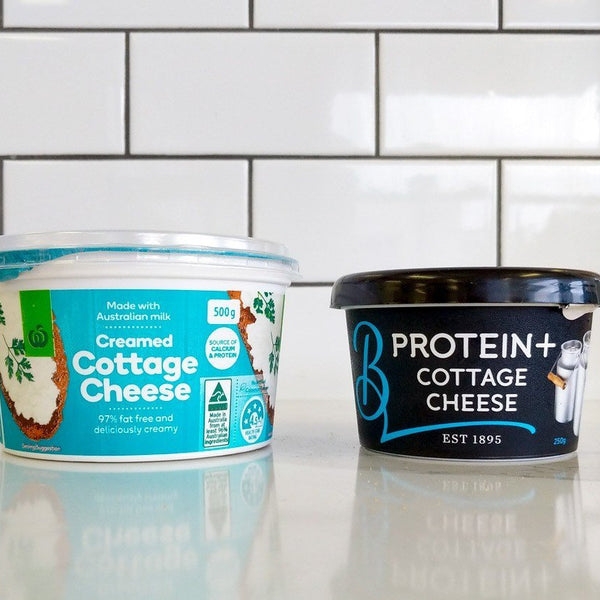Between net carbs and total carbs, insoluble and soluble fibre, sugars and sugar alcohols, getting your macros right on a low carb diet can seem complicated.
When it comes to carbs, there's sometimes confusion between net carbs and total carbs and whether to include fibre in the carb content.
The difference between net carbs and total carbs
Net carbs are simply carbs without fibre, and total carbs include fibre. Put simply, net carbs + fibre = total carbs.
Like all nutrition labels in Australia and New Zealand, our labels list fibre separately to carbs. That means that "carbs" on the back of the pack of all our products are always net carbs.
In comparison, most nutritional labels in the USA and Canada include fibre in the total carb content. People in the USA will generally need to deduct the fibre from the "total carbs" to get "net carbs".
So, is it net carbs or total carbs that you need to consider when counting carbs?
Net carbs, listed as "carbs" on our nutrition labels, is what you need to count on a low carb diet because they are digestible carbohydrates. Dietary fibre isn't digested so it doesn't affect blood sugar. That's why, in Australia, fibre is listed separately to carbs on nutritional labels.
But, there are two types of fibre: soluble and insoluble, and they are not equal.
The two types of fibre: soluble and insoluble
Fibre doesn't have a significant impact on blood sugar or calorie count because it is resistant to digestion. This is why we rely on net carbs when calculating carb content.
Insoluble fibre doesn't impact blood sugar or count as calories because it isn't digested or fermented. Soluble fibre, also known as prebiotic fibre, is resistant to digestion but is fermented by the gut bacteria.
Some people following strict ketogenic diets sometimes consider soluble fibre because it's fermented by gut bacteria. This can have a very insignificant impact on blood sugar that generally isn't enough to take into account. The amount of soluble fibre within the fibre content and how much is taken up by the gut bacteria is hard to know.
That's why relying on net carbs is how most people on a low carb diet count their carbs.
Sugars and sugar alcohols
Sugars are always included within the carb content on nutrition labels. This is because they are digestible carbs that have an impact on blood sugar levels.
We don't add any sugar to any of our products. Any "sugars" listed within the carbohydrate listing are naturally occurring sugars in the ingredients. Almond meal, coconut and lupin, for example, contain naturally occurring sugars.
Sugar alcohols, such as
erythritol and
xylitol, have minimal impact on blood sugar. That's because they aren't digested or absorbed in the blood, which is why we don't count these as carbs or sugars.
Summary
All you need to consider when counting carbs is the net carbs, because they are digestible. On our nutritional labels and any other labels in Australia and New Zealand, net carbs are listed as "carbs" without the fibre.
A diet high in fibre is great for your digestion and promotion of good bacteria for a healthy gut. Fibre won’t affect your blood sugar which is why it’s listed separately on the nutritional label.
Sugars are always listed within the net carb content. But, be rest assured that any "sugars" listed on the label of our products are naturally occurring sugars in the ingredients.



